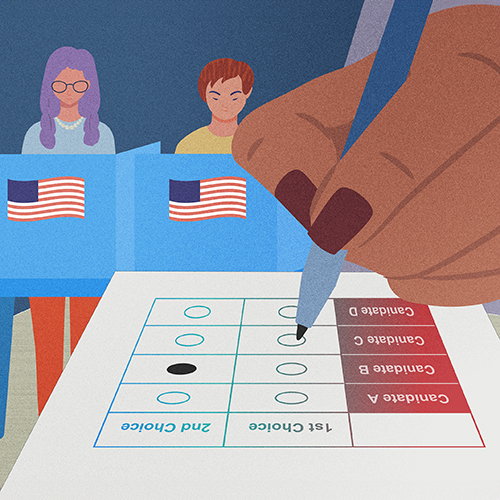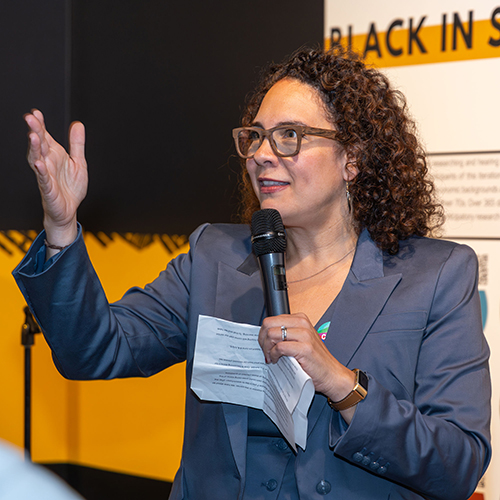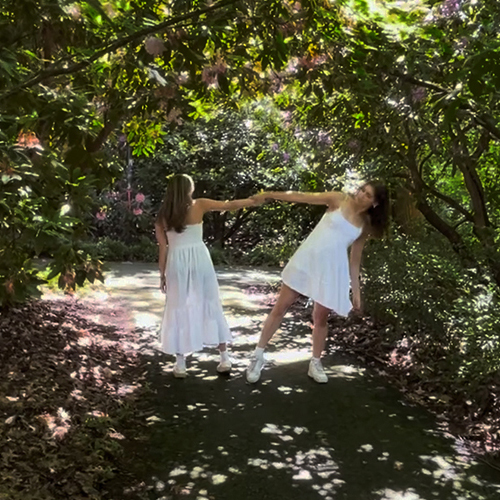Last fall, students in the UW Mixed Club—a campus group for students of mixed race—discussed how rarely mixed-race issues were being addressed in their courses. Then they decided to do something about it.
Members of the club, along with other interested students, began planning a course to tackle the subject head on. They spent fall quarter meeting regularly, then led a “Focus Group” course on mixed identity through the Comparative History of Ideas (CHID) Program. CHID Focus Groups are student-led two-credit courses that allow students to explore a subject in depth.
That experience whet the students’ appetite for a more formal offering. They developed a proposal for a student-led course, “Mixed Identities and Racialized Bodies,” and floated the idea by several department chairs. The first to respond with an enthusiastic “yes” was Women Studies Chair David Allen, who agreed to offer the course as Women Studies 256, a course number reserved for credit/no-credit student-led courses.
With Women Studies on board, the students moved into high gear. “It was like, ‘Remember that great idea we had? Now we need to follow through,’” recalls Jessica Norberg, one of the students who developed and facilitated the course.

Coming up with assigned readings was particularly daunting. “There’s no mixed-race canon, so we had to come up with that,” says Norberg, who credits classmate Samantha Gonzalez with taking the lead on reviewing the available literature. “Samantha was kind of our librarian,” says Norberg. “The girl can read a book in half an hour. She did a lot of the research.”
Once the group agreed on the overall structure of the course—including the difficult decision to limit the scope to the U.S.—individuals took the lead on specific subjects. Over ten weeks, they covered a range of topics that included the history of racialization, assimilation, the politics of “claiming,” legal and health ramifications for mixed identities, the role of education in racial formation, and more.
Many topics were informed by the students’ own interests. Several pre-med students led sessions on health care, exploring the implications when studies require participants to identify as a single race for data-gathering. For one of his topics, Joe Thompson, an avid reader of science fiction, explored the ways that long-held conceptions of racial difference can emerge in narratives such as science fiction and cyborg stories. “I think getting people to look for ideas about how we think about race in places you don’t expect can go a long way to helping people think about the universal implications of those frameworks,” says Thompson.
Allen met with the student facilitators regularly to provide guidance as they planned the course content. He was not only encouraged by their efforts, he was downright inspired. “In 40 years of working with undergraduates, I’ve never seen a more committed, well organized, and academically skilled set of undergraduates,” enthuses Allen.
While most of the class facilitators were mixed race, only about a third of the students taking the class shared that demographic. “That was a surprise,” admits Norberg. “When we realized that, we had to change our lesson plans and some of the questions we had formulated, which had been focused more on personal experience.”
Of course, everyone in class felt they knew at least one person with a mixed-race identity: President Obama. “This class really came together at an awesome time,” says Norberg, referring to Obama bringing greater visibility to mixed race issues. Norberg is quick to add that mixed race is among the fastest-growing demographic in the U.S.
“I hope people leave the course with tools to get out of the binaries—to go beyond understanding race as either/or,” adds Norberg. “I think that ‘either/or’ is one reason we have so many problems.”
More Stories

Democracy by the Numbers
Mathematics and Democracy, an undergraduate mathematics course, explores the role of math in many aspects of democracy, from elections to proportional representation.

Interrupting Privilege Starts with Listening
Personal stories are integral to Interrupting Privilege, a UW program that leans into difficult intergenerational discussions about race and privilege.

Dancing Across Campus
For the dance course "Activating Space," students danced in public spaces across the University of Washington's Seattle campus this spring.